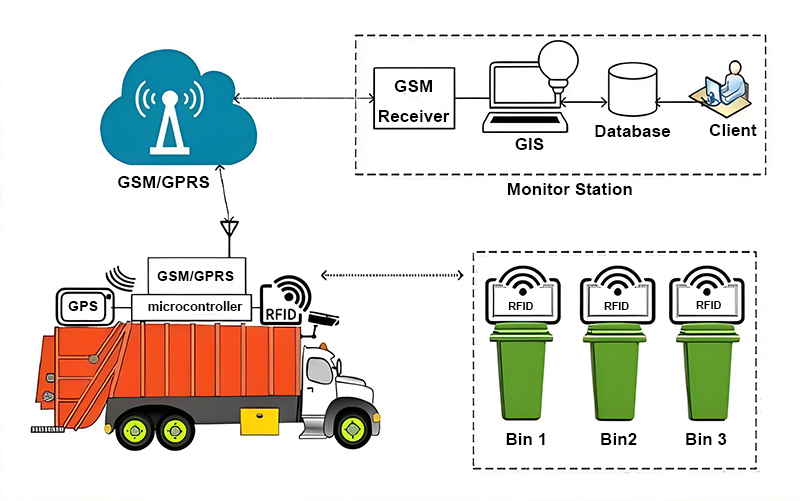RFID: Driving Smarter and More Efficient Waste Management
Radio-Frequency Identification (RFID) technology is bringing intelligence and efficiency to waste management systems, enabling smarter collection, accurate billing, and improved recycling outcomes.

Core Applications:
1. Waste Bin Identification: RFID tags attached to bins (household, commercial, or industrial) uniquely identify the user and bin type.
2. Automated Weighing & Data Capture: When lifted by RFID-equipped collection trucks, the bin's weight is recorded and instantly linked to its owner via the tag.
3. Pay-As-You-Throw (PAYT) Billing: Enables precise billing based on the *actual weight* or *fill level* of waste generated, promoting waste reduction and fairer pricing.
4. Route Optimization: Real-time data on bin fill levels (often combined with sensors) allows dynamic collection route planning, reducing fuel consumption, emissions, and operational costs.
5. Recycling Compliance & Contamination Tracking: Tags on specific bins (e.g., recycling vs. general waste) help monitor participation and identify contamination sources if waste streams are scanned post-collection.
6. Asset Management: Track the location and status of valuable assets like bins and containers, reducing loss and optimizing maintenance.
Key Benefits:
- Cost Efficiency: Reduced fuel/operational costs via optimized routes, lower billing administration.
- Revenue Accuracy: Guaranteed PAYT billing based on precise weight/volume data.
- Waste Reduction: PAYT incentivizes residents/businesses to generate less waste and recycle more.
- Improved Recycling Rates: Better monitoring of participation and contamination leads to cleaner recyclables and higher processing value.
- Environmental Impact: Lower emissions from optimized truck routes and reduced landfill volumes.
- Data-Driven Decisions: Accurate data on waste generation patterns informs policy and infrastructure planning.
RFID transforms waste management from a static service into a dynamic, data-driven system, enhancing sustainability, fairness, and operational efficiency.
Contact: Sam
Phone: 15915325697
Tel: 13751187596
Email: sales@rfidcube.com
Add: 3F, A1 Building, Low Carbon Innovation Industrial Area, Shihua Avenue, Dayawan, Huizhou, 516083, China